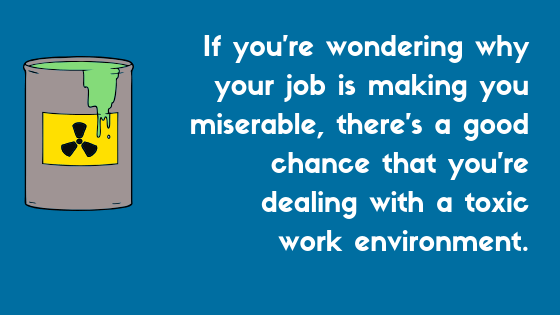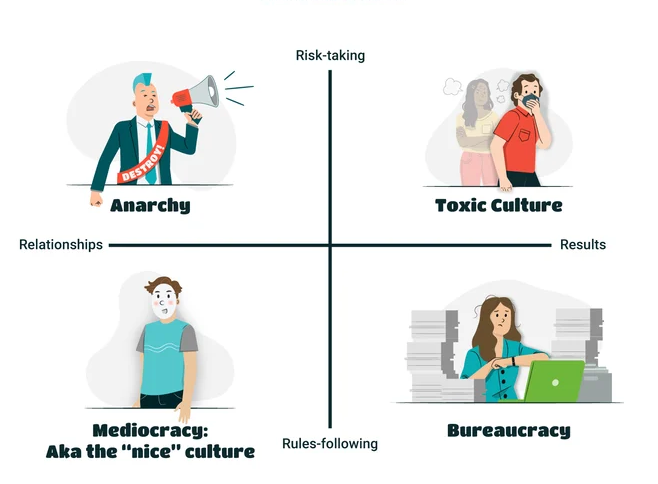Imagine a situation, where you’re in the middle of building a team and your best resources or talents leave. How does it feel? Yes, it’s really very upsetting. Of course, whenever employees leave, there can be mixed emotions and the reasons could be varied. But, when dedicated, hard-working, and efficient employees leave, that could have wider implications and fall out of various reasons for quitting. Why do good employees quit a company?’

What could be the wrong-doing of the company that prompted the employees to take such drastic steps? At the same time, finding a replacement for those people and making them indoctrinated into the organization can be very hard. Find the top 8 reasons why good employees quit.
Poor office culture
Office culture goes a long way in determining whether a job is right for an employee or not. For example, an employee might have found their dream role on paper, but in reality, when he lands up actually it’s not there what he had thought. The negative atmosphere and poor & sickening work culture put the employees in a horrible state and make them quit.

Having a great and forward-looking work culture can be the difference between keeping a great employee and being another stepping stone in an employee’s work history. Every company has a definite work culture, getting identified with it and they have developed that over some time. Not everyone can fit and that’s fine so long as the persons that identify with the culture stay.

Top management should think of bringing some changes to that stereotypic mindset, making it more accessible to others. Otherwise, who would want to work in a negative, stifling, and sickening environment? That’s why they have to introduce some innovative things from time to time that can attract, stay, and grow good employees.
Contributions Undervalued
Repeatedly the work and contributions of employees are not being recognized or low appreciation and remuneration can force them to seek other employment. Reassuring someone of being a job well done, then nobody underestimates the power of giving a pat on the back, especially the top performers who are intrinsically motivated.

Particularly, some good employees give it their all`, and need time and again some reassurance that’s really needed as a reward. In that context, managers need to communicate with the people what makes them feel good and then reward them for the job well done. With top performers, this should happen often if they’re doing it right.
The feeling of not being compensated enough for the work they’re doing can be very de-motivating. The wages seem too low and they feel under-appreciated and make few employees stay back if they feel important in a way to a team or project. However, it is needed for employees to benchmark salaries and ensure that they maintain competitive remunerations.

Promoting wrong people
Good, hard-working, and motivated employees want to work with like-minded professionals. When the managers don’t do enough homework while hiring, it’s very uncomfortable for those who work alongside them. Why does
Every team is vulnerable to weak links. The teams know which are those weak links and won’t allow them to be the cause of the failure. This is where the job of the team leader and manager role becomes crucial, knowing the skills and capabilities of the members. The problem here is that when the manager promotes the wrong people for the job, the employees are bound to feel neglected. People go on working day and night for the promotion, but someone else gets the advantage. This is one of the most common and cruelest reasons why good employees leave an organization.

Of course, it may feel subjective, and the comparisons may not be clear and justified, there’s a definite communication problem, being viewed by employees as “favoritism”. If you want your hard-working and capable employees to be insulted, ignored, or driven out, this could be one of the finest ways to employ them.
Overwork

Overwork is one of the biggest reasons why good employees quit, making them feel as if they’re being punished for being top performers. Overworking is always counter-productive. It’s somewhat an oxymoron of types; believe it or not, actually it’s a trap. Eventually, the overworked employees’ performance sharply declines over some time. The reasons could be varied and contradictory. One of the causes, one can guess could be for not getting along well with the top management.
Talented and hard-working employees can take on a bigger workload, but it doesn’t mean they should be suffocated with their jobs. Without changing the process, position, or title, if you just go on increasing the workload, it would be highly depressing and not following the good corporate culture.

Job profile and Future becoming unclear
Many times when a person is hired for a particular job or role, the job description appears perfect, but the corporate realities of the role change with interactions within the company, and simultaneously business conditions change. Such situations bring a great deal of uncertainty, confusion, and insecurity among the ranks and a dedicated employee feels utterly discomforted and disappointed which can make them look another way around. Top management must ensure the employee goes through regular coaching and training sessions, making him/her about the clarity of the job at hand. Proper reward and motivation could work wonders for them.
Workplace Politics and Peer Pressure

In this highly competitive and technology-oriented corporate arena, there’s cut-throat competition to keep their places intact in the organization. That generates workplace politics and peer pressure. Workplace politics is more or less prevalent in every corporate. When a new employee enters a company, he or she has to go through some tough situations with seniors. If it’s aimed at something professional, then it’s fine. If it’s aimed otherwise, being guided by some unscrupulous and jealous colleagues, then it turns worse.

Undermine Personal Growth
Promoting wrong talents is a different thing, but not allowing them to pursue their passion and personal growth sometimes turns out to be very discomforting and unpleasant. Passionate employees try out new ways to become more productive. They are always on the lookout for innovation to contribute to the growth of the company and, at the same time at the personal level also. But they’re repeatedly being discouraged or not given the go-ahead. Finally, with no options to explore, they call it to quit.
Implementation of Unnecessary Rules
Every organization follows some basic and ground rules that have to be obeyed by all the employees working in that organization. But there exists a difference between creating necessary rules and the ones that can be irritating or suffocating.

The rules such as an overzealous attendance policy, shortsighted policies for creating order within the team, a cut in remuneration for various reasons, and the same yardsticks are not being followed for everyone. These things make employees give a second thought to continue in the organization.










